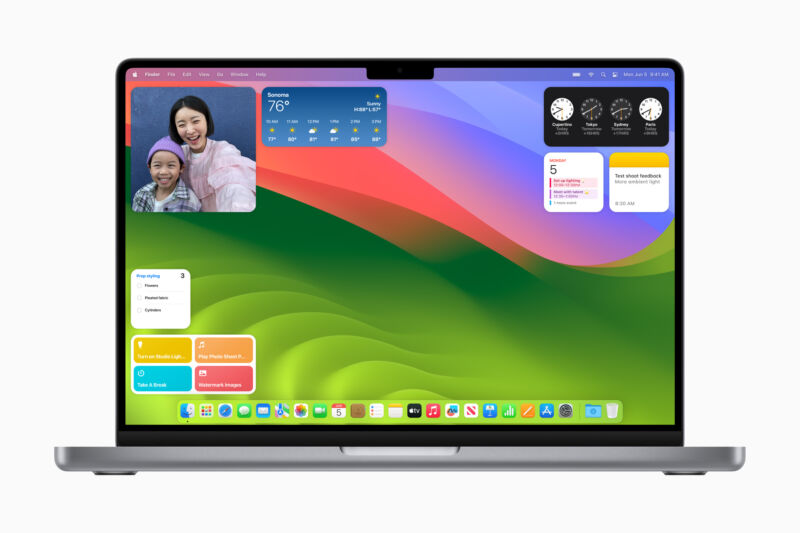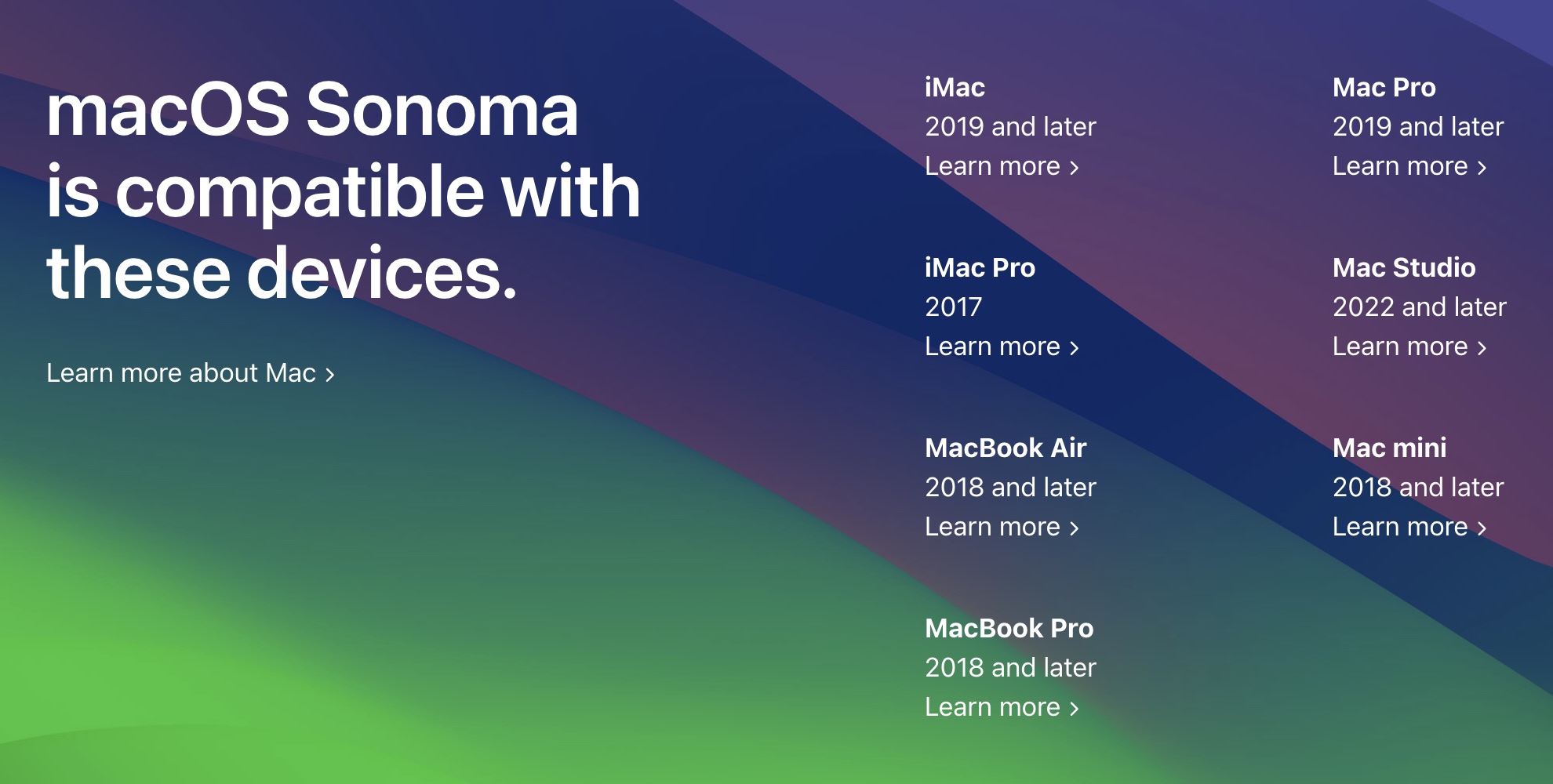macOS Sonoma drops support for another wide swath of Intel Macs

With the introduction of the Apple Silicon Mac Pro, Apple has finally completed the Apple Silicon transition and booted all Intel Macs from its current lineup. But software support for Intel Macs isn’t quite done, at least not yet. The macOS Sonoma update will still run on a couple generations of Intel Macs, but in general, if you’re using anything made before 2018 or anything without an Apple T2 chip in it, you won’t be able to run the new OS.
Sonoma drops support for all versions of the 12-inch MacBook, the 2017 MacBook Pro and MacBook Air updates, and the 2017 iMac. Macs made after 2017 all generally integrated Apple’s T2 chip, which handled some Touch Bar functionality on some MacBook Pro models, but provided additional security and video encoding features to all Macs that included it. It’s essentially an A10 coprocessor included along with the main Intel CPU, a bridge between the Intel era and the M1 and M2 Macs that would follow.
There is one 2017 Mac that’s still supported: the one and only iMac Pro, released in December of 2017, which was the first Mac to include the T2. There’s also one exception—the 2019 iMac, which doesn’t have a T2 on board but does run the same firmware as the other T2 Macs.

According to two decades’ worth of Mac support data that we have compiled and analyzed, Apple has been dropping support for Intel Macs a bit more quickly in the Apple Silicon era than it was during the height of the Intel Mac era in the early- to mid-2010s. A Mac released between 2009 and 2015 could typically expect between seven and eight years of new macOS releases, but for Macs released in 2016 or 2017, that number is closer to six years.
Apple does provide older macOS releases with around two years of additional security-only updates after replacing them, so people with Macs stuck on macOS 12 Monterey or macOS 13 Ventura should still get Safari updates and patches for the most severe security vulnerabilities after Sonoma is released. For anyone still running macOS 11 Big Sur, the time has come to either upgrade your operating system, upgrade your hardware, or take your chances running without patches.
https://arstechnica.com/?p=1945164